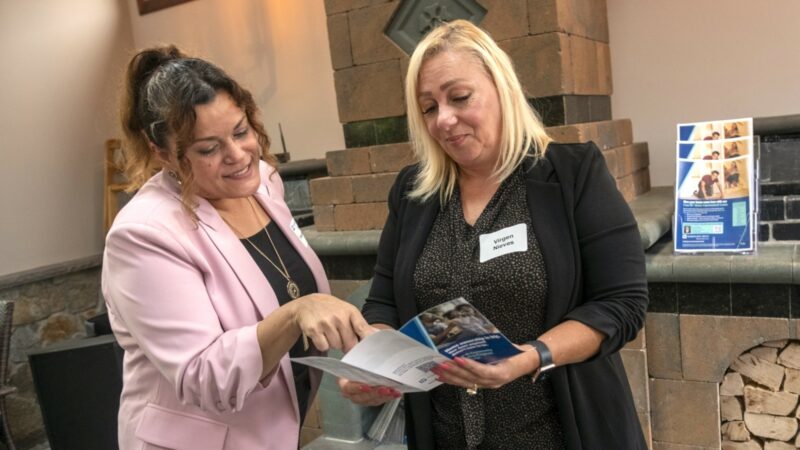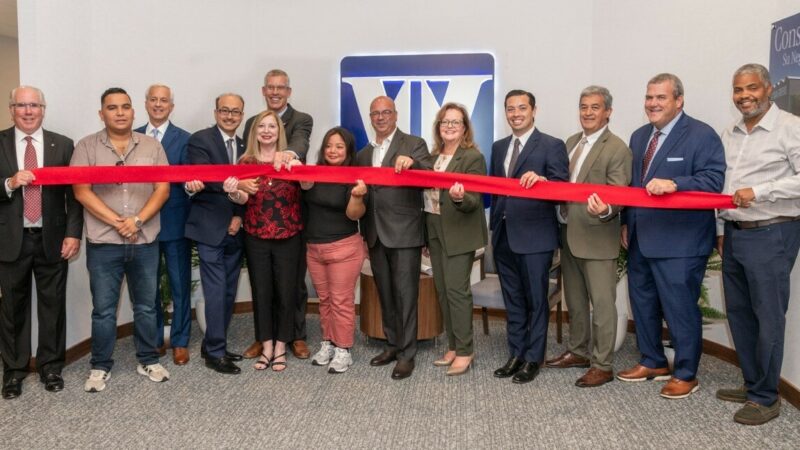Is a reverse mortgage right for you?
Our experts can help

If you're a homeowner age 62 or older, a reverse mortgage allows you to access the equity in your home to supplement your retirement income, finance home renovations, or pay for long-term health care coverage.
- A reverse mortgage is a loan that lets senior homeowners convert home equity into cash while living at home for as long as they want
- You can receive payments as a lump sum, line of credit, or monthly payment for a specific term or for life
- Funds are tax-free* for a specific term or for life and can be used for any purpose. Borrowers continue to own their own home
- There is no monthly mortgage payment or credit qualifications, and the loan does not become due until the last borrower moves out, passes away, or sells the home.
- Property taxes and homeowner insurance must still be paid, and the property maintained to prevent default on the loan.
Common Misconceptions About Reverse Mortgages
Expand the information below to learn more about Reverse Mortgages.
False - You are not required to repay the loan as long as one of the borrowers remains in the property and pays the taxes and insurance.
False - All reverse mortgages are non-recourse loans, which means that you can never owe more than what your home is worth regardless of the loan balance.
False - Forward-thinking senior homeowners are choosing reverse mortgages to eliminate a monthly mortgage payment and convert the equity in their home into income. A reverse mortgage is a way for seniors to stay in their home and receive cash for any purpose - whether it's day-to-day living expenses, paying off existing debt, purchasing a second home, or traveling the world. Best of all, you retain the title to your home and remain living independently.
True - Funds are tax-free* and can be used for any purpose. And, you can decide on a payment that is right for you. You can receive payments as a lump sum, line of credit, or monthly payment for a specific term or for life.
*Consult a tax professional.
False - Based on the individuals we've already helped, children of seniors are usually in favor of this type of loan. The reverse mortgage provides the homeowner with financial independence, resulting in peace of mind for their children.
False - A reverse mortgage is considered a loan and therefore is not included as income to determine eligibility for Medicare and Social Security.
Talk to a Mortgage Specialist
To get started, complete a brief online form and one of our mortgage lenders will get in touch with you!
*Consult your tax advisor or tax professional
Reverse Mortgages are originated through Washington Trust Mortgage Company LLC only.
Washington Trust Mortgage Company LLC is a subsidiary of The Washington Trust Company, of Westerly; Equal Housing Lender; NMLS #901927; MA Mortgage Broker License #MC901927, MA Mortgage Lender License #MC901927, RI Lender License #20122863LL, RI Loan Broker License #20122864LB, NH Mortgage Banker License #901927MB
For Reverse Mortgage: We arrange but do not make loans. MORTGAGE BROKER ONLY, NOT A MORTGAGE LENDER OR CORRESPONDENT LENDER.
This material is not provided by, nor is it approved by the Department of Housing & Urban Development (HUD) or by the Federal Housing Administration (FHA). You should consult your benefits specialist, or financial advisor as Reverse Mortgage payments may have an effect on your particular situation.












